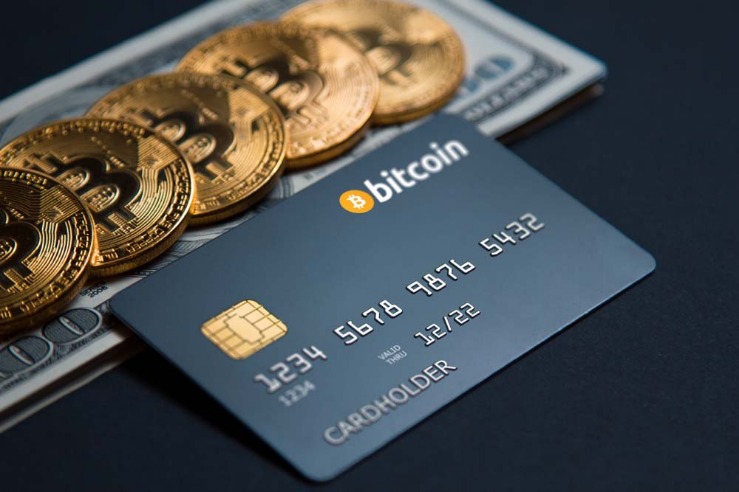Make sure to do your own research and remember that your assets are not FDIC-insured. As with any investment, make sure you consider your investment goals and current financial situation before investing in cryptocurrency or individual companies that have a heavy stake in it. Cryptocurrency can be extremely volatile—a single tweet can make its price plummet—and it’s still a very speculative investment. If you’re new to the world of crypto, figuring out how to buy Bitcoin, Dogecoin, Ethereum and other cryptocurrencies can be confusing at first. You can start investing in cryptocurrency by following these five easy steps.
The pandemic did little to halt the increase of cryptocurrencies hitting the market. During the course of 2019, Bitcoin’s market cap surpassed the $100 billion mark, ending at $134.57 billion. Despite this, the number of cryptocurrencies with a market cap exceeding $1 billion dropped to nine. Bitcoin’s market cap increased to over $5.5 billion, while November 2014’s second-largest cryptocurrency by market cap, XRP, fell to approximately $144.18 million.
Trade one crypto for another and then cash out
Read more about equipment here.
Research any exchange before you buy crypto.
In fact, many so-called “free” brokers embed fees – called spread mark-ups – in the price you pay for your cryptocurrency. Ethereum software enables many blockchain innovations, like smart contracts, non-fungible tokens (NFTs), and decentralized apps (dApps). While ethereum (the cryptocurrency) was designed to facilitate transactions on products built on and transactions occurring within the Ethereum network, some have turned to it as an investment. When a transaction takes place, a network of computers running blockchain software verifies that the payment is possible between the parties involved and then executes it. The blockchain also keeps a log of transactions to help ensure transparency within the network. To encourage people to verify blockchain transactions, those who verify transactions, called miners or validators, receive compensation when new transactions are added to a blockchain transaction log. Once a transaction is validated, recipients can access funds using their private key.
Each node is a device that runs the cryptocurrency’s software, giving it the ability to validate and record transactions. Market BasicsCryptocurrenciesWhen the trading price of two cryptocurrencies, Bitcoin and Ethereum, rocketed to the stratosphere in 2017, the term cryptocurrency rose to global popularity. Simply because an asset is available to trade does not necessarily mean that it’s the right investment for your situation. And as discussed above, all investing carries the risk that you could lose money.
Whether it’s a down payment for a house or an important upcoming purchase, money that you need in the next few years should be kept in safe accounts so that it’s there when you need it. And if you’re looking for an absolutely sure return, your best option is to pay off debt. You’re guaranteed to earn (or save) whatever interest rate you’re paying on the debt. Here’s how to start investing in cryptocurrency and the significant risks you need to watch out for. Bankrate.com is an independent, advertising-supported publisher and comparison service. We are compensated in exchange for placement of sponsored products and services, or by you clicking on certain links posted on our site.
Cryptocurrency coins and tokens are stored in exchanges or electronic wallets, which are highly secure as they use a unique public-private key pairing to verify the owner of the currency. However, crypto purchases with credit cards are especially risky and some exchanges, such as Coinbase, don’t support them. Some credit card companies don’t allow crypto transactions either.
There are now thousands of these digital assets, with more appearing every day. So should you buy into the hype and invest in cryptocurrencies, or steer well clear? Where do these young people go when they want advice on their investments? As the crypto industry matures, investing in crypto assets becomes both easier and more secure. It’s an exciting space that offers you access to a new technology that’s shaping innovation in many industries, but it also comes with risks.
For more advanced investors, there are decentralized exchanges whose fees can be lower than those charged by centralized platforms. Those can be more difficult to use and demand more technical know-how, but they may also offer some security benefits because there is no single target for a cyberattack. Cryptocurrencies can also be traded through peer-to-peer transactions. A crypto wallet is a physical device or online software used to securely store the private keys to your cryptocurrencies. Some exchanges offer built-in wallet services, making it easy for you to store directly though the platform. But all exchanges or brokers don’t automatically provide wallet services for you. The providers mentioned below are typically referred to as centralized exchanges, since they’re managed by a single company.
Don’t put all your money in Bitcoin, for example, just because that’s the name you know. There are thousands of options, and it’s better to spread your investment across several currencies. According to Consumer Reports, all investments carry risk, but some experts consider cryptocurrency to be one of the riskier investment choices out there. If you are planning to invest in cryptocurrencies, these tips can help you make educated choices. Cryptocurrency, sometimes called crypto-currency or crypto, is any form of currency that exists digitally or virtually and uses cryptography to secure transactions.
We do not include the universe of companies or financial offers that may be available to you. Any estimates based on past performance do not a guarantee future performance, and prior to making any investment you should discuss your specific investment needs or seek advice from a qualified professional. By spreading that information across a network, rather than storing it in one central database, blockchain becomes more difficult to tamper with. Blockchain does not store any of its information in a central location. Instead, the blockchain is copied and spread across a network of computers. Whenever a new block is added to the blockchain, every computer on the network updates its blockchain to reflect the change.

Leave a Reply